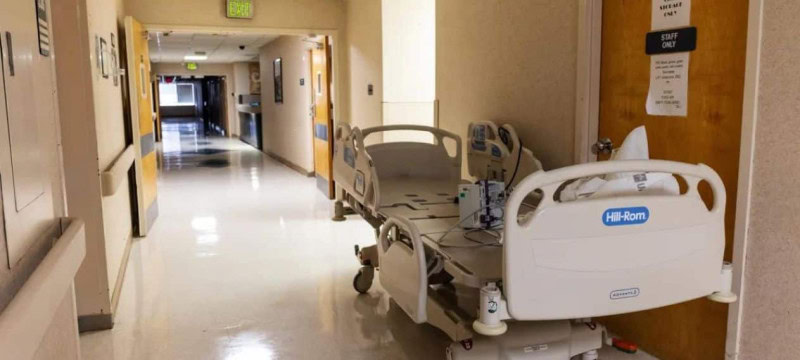In a distressing turn of events, crucial public sector hospitals in both the federal capital and Lahore face an imminent standstill after the Finance Division rejected a critical funding request of Rs11 billion proposed by the federal health ministry. This financial setback has already triggered a domino effect, halting salaries for several employees and inciting protests among nurses at the Pakistan Institute of Medical Sciences (Pims), now in its second week.
Read more:Pakistani Government Considers Appointing Military Officers to Head Polyclinic and PIMS Hospital
The gravity of the situation extends beyond unpaid salaries. The labs in these hospitals are on the brink of discontinuation due to dwindling testing kits, while radiology tests face refusal owing to the unavailability of films. Patients are being denied essential medicines as the allocated tender amounts to pharmaceutical companies remain unpaid.
The ripple effect of this decision impacts not only the hospitals but also essential departments in the health ministry, dispensaries, basic health units, and institutes, causing widespread disruption to healthcare services across the region.
The Finance Division’s rationale for rejecting the funds points to IMF preconditions, citing that additional funds can only be released in case of a “severe national disaster.”
Adding to the dire situation is the impending impact on Shaikh Zayed Hospital in Lahore, which relies on federal health ministry funding and faces similar disruptions in its operations.
A letter from the Finance Division explicitly stated, “No supplementary grant for any additional unbudgeted spending over the parliamentary approved level in FY 2023-24 may be allowed until the formation of a new Government (except if needed to respond to severe national disaster).”
Insiders reveal that this refusal could spark a dire crisis within these federal ministry-run hospitals, potentially leaving patients without access to essential medications and medical facilities.
The looming shortage of medicines, delayed pending stocks due to unpaid tenders, and the critical scarcity of testing kits paint a grim picture for the immediate future of healthcare provision in these hospitals.
Further exacerbating the situation, healthcare workers, including doctors and nurses, face an uncertain future regarding their salaries, with the looming threat of non-payment in the upcoming months due to the lack of funds.
As the crisis deepens, concerns grow about the possibility of severe shortages in medical personnel, medicines, and essential medical tests, potentially causing a breakdown in emergency healthcare services.
The denial of funds has raised significant apprehensions among healthcare professionals and stakeholders, who question whether the ensuing crisis can be labeled as anything less than a severe national disaster.









